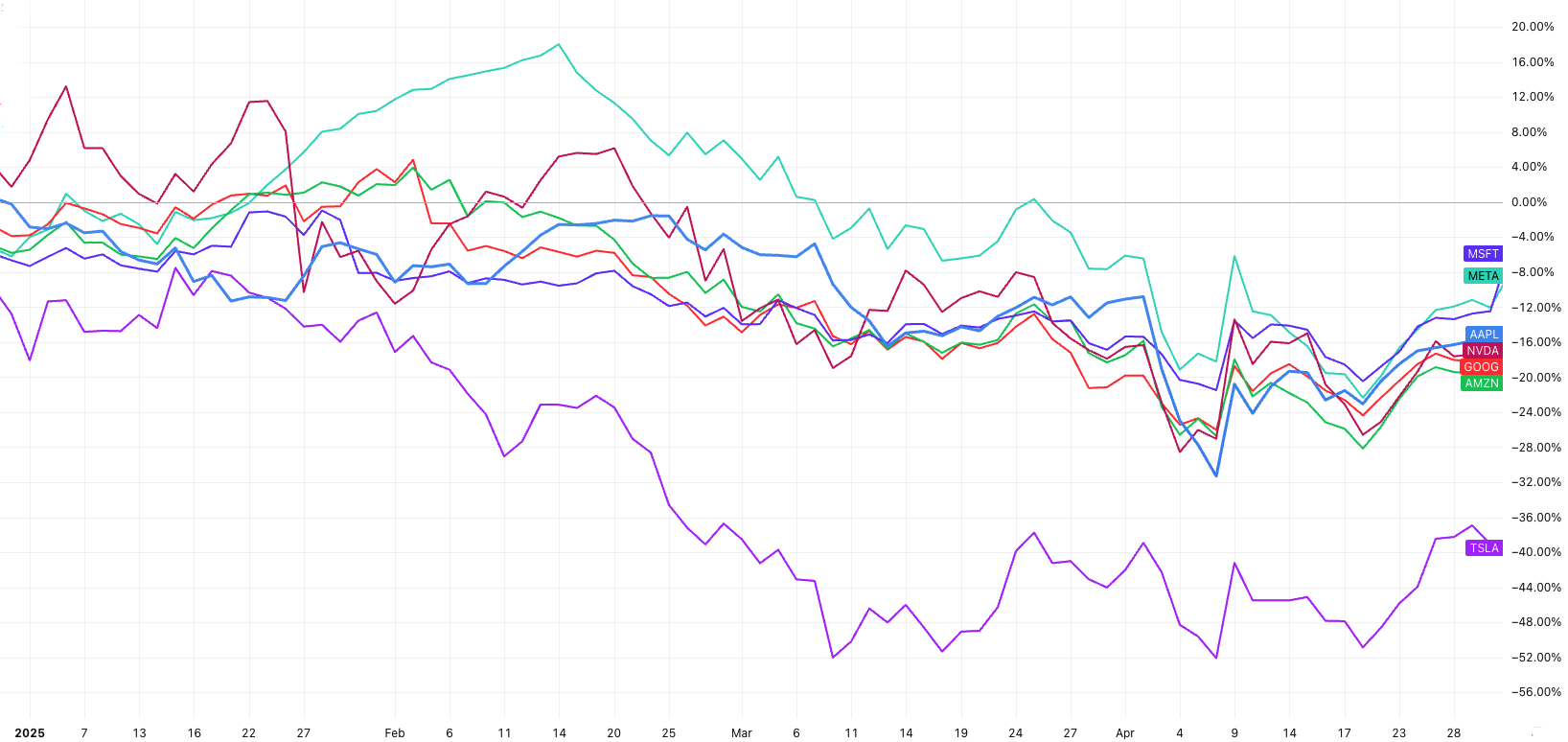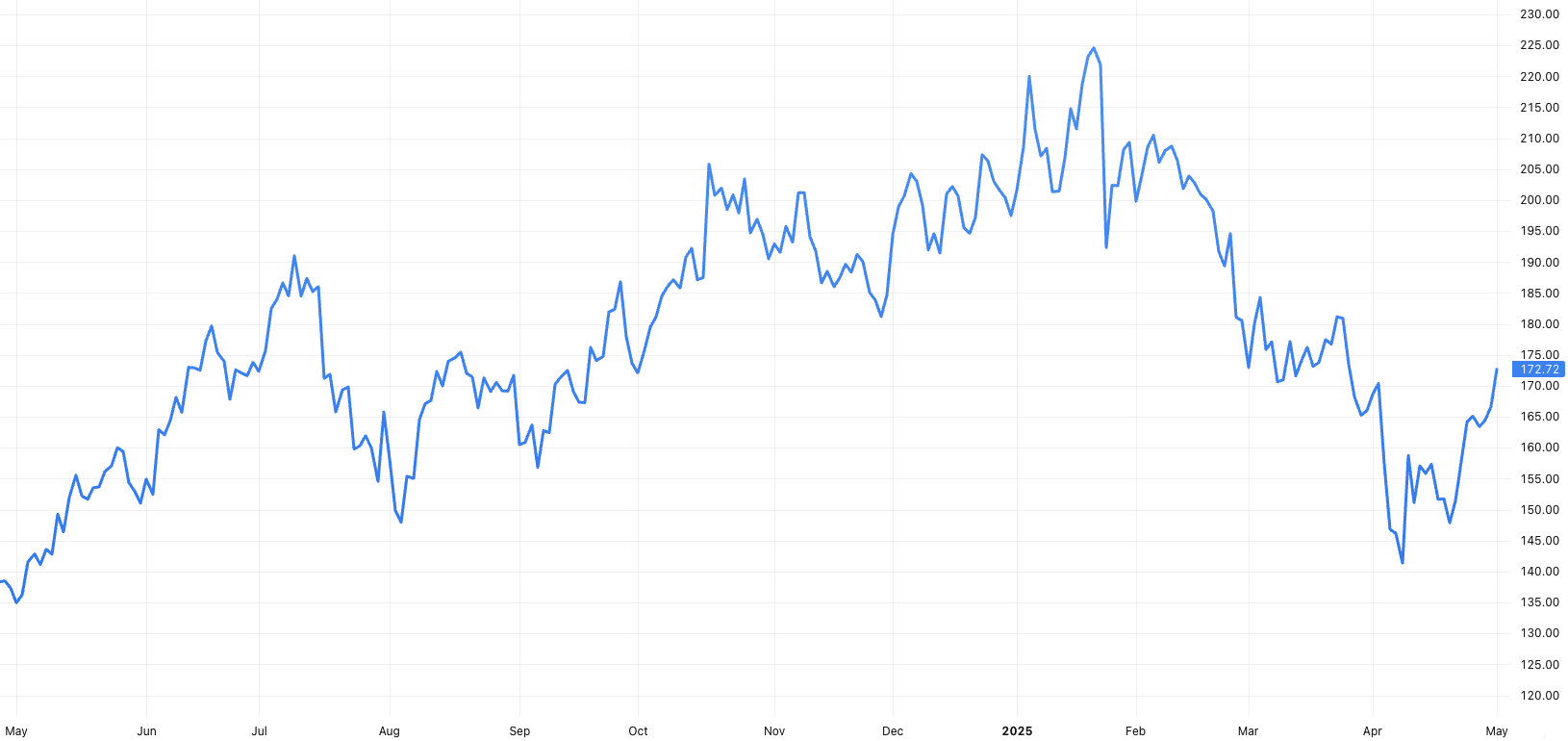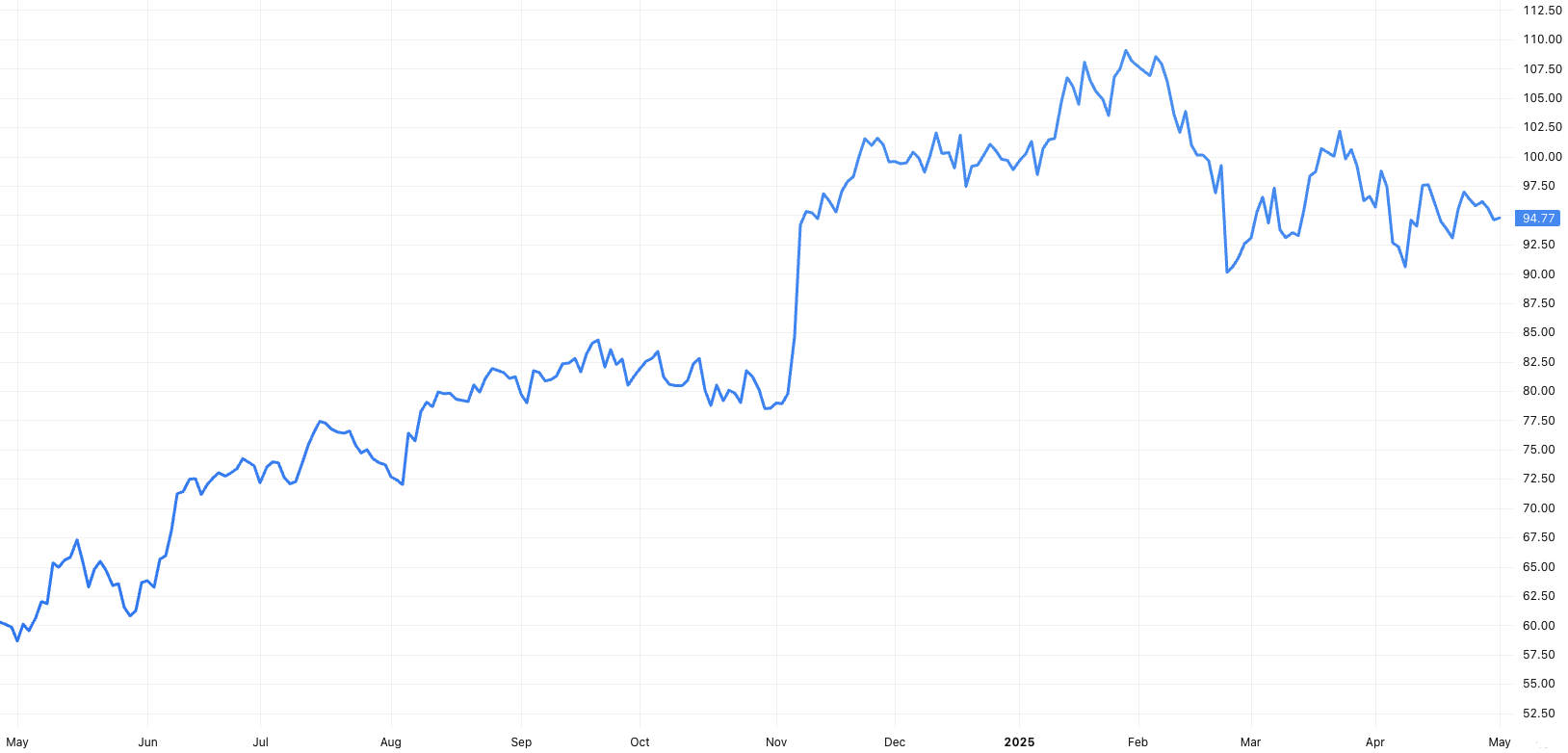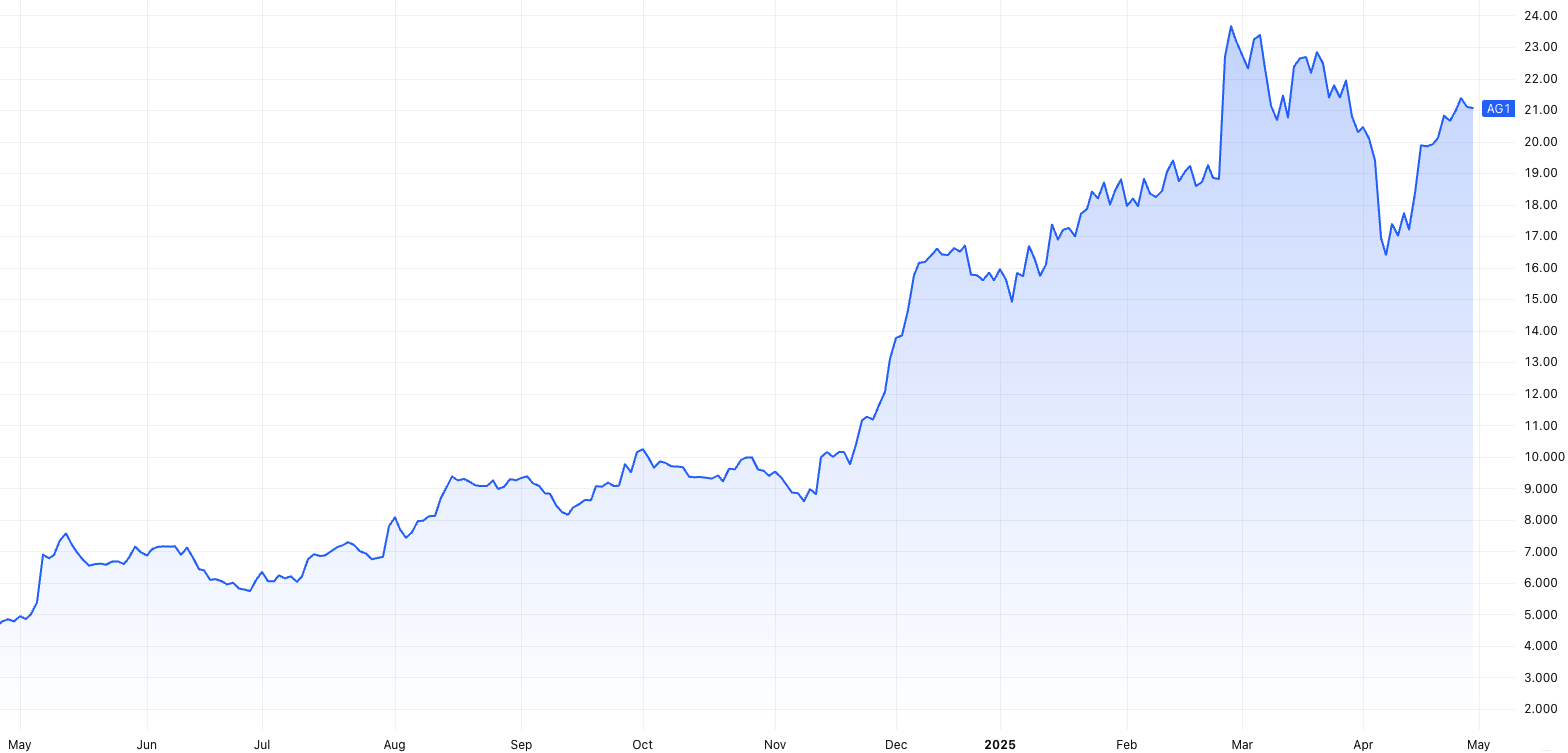Forget the Mag 7: How you can find quality stocks elsewhere
The story of the global equities market in recent years has really been the story of the Mag 7 stocks.
This group of intrepid stock heroes had driven the US stock market to record highs and led the charge on the new frontier of US tech optimism.
But anyone who’s seen the eponymous film after which they’re named knows a happy ending was never on the cards for all of them.
The Mag 7 in 2025 so far

Tesla (NASDAQ: TSLA) is down 26% YTD and is now facing blowback from its recent disastrous earnings call (and rumours of a search for a new CEO to replace Elon Musk).
Nvidia (NASDAQ: NVDA) is down almost 20%, with double digit drops for most of the remaining Mag 7.
As Lonsec's global equities sector manager, Hong Hon, summarised it at the 2025 Lonsec Symposium this week, "elevated evaluations, macroeconomic headwinds and US policy uncertainty" mean the sun may be setting on the Mag 7 as the saviours of equity investors everywhere.
But if it’s time to let them ride out of your portfolio and into the sunset, how do you go about finding their replacements in global markets?
Here’s what the Lonsec panel had to say.
The three pillars of quality
According to JP Morgan portfolio manager, Helge Skibeli, getting quality right is the key to getting the alpha right.
For 20 years, JPMorgan has used the same formalised framework to find quality global investments that is built around three key considerations.
The first is the picture the company’s financials paint right now in terms of profitability and success. It means asking the same questions of all of the 2,000 plus companies in its global research list:
How good is your gross margin, how good is your free cashflow margin? What kind of return on invested capital do you have?
The second is what JPMorgan calls “duration” - is this current economic success sustainable over the next 5-10 years or can it even improve?
The third is governance. Again it means asking some obvious, but important, questions:
“What do we think about this management and the board? Will they redeploy that free cashflow that we see coming in a manner which is really beneficial to us as shareholders? Are they going to pay dividends? Are they going to buy back shares?”
Companies assessed on this framework are then given a classification.
The top 5% are designated “premium” companies.
Think ASML (NYSE: ASML) and Taiwan Semiconductor (NYSE: TSM). Companies with clear durational strength and impressive financials.
The next 15% of companies are “quality” - great companies that may have some durational risk.
Skibeli cites the Mag 7’s Nvidia as an example, given its potential for disruption, as seen with the shock release of Chinese AI DeepSeek.

Once these companies have been identified, it’s simply a matter of finding the ones that represent value right now.
“We want to combine the long-term valuation signal from our process with quality. If we can manage these two twin objectives effectively, we can own a lot of quality at a good price. That's what we're trying to achieve," he said.
A fundamentally different lens
Emerging markets represent fertile grounds for finding Mag 7 type opportunities, but require a completely different approach, says Aikya’s Tom Allen.
“The equation in emerging markets is a little bit harder because often that quality of stewardship, the people running the business, it's harder [to establish] simply because the rule of law is not there,” said Allen.
“Institutions are weaker and there's a large constituent of state enterprises and businesses that are very close to the state.”
But the fundamental signals of quality remain the same, even if emerging markets don’t obey the same timeline as developed markets.
“You're still looking for high quality stewards of businesses, you're still looking for leading franchises, you're still looking for very strong financials. But I think the opportunity set has evolved. Emerging markets have skipped certain stages of development.”
It means finding companies that have mastered their local markets and managed to jump on the developments that have defined the winners in markets like China and India, specifically e-commerce and payments.
“Emerging markets are a very risky place to grow capital. Ultimately we're trying to give investors a smoother ride and we're trying to avoid a draw down," said Allen.
"If you never compromise in quality, then you can stay away from some of these businesses that ultimately end up getting in trouble if the winds change direction.“
Asked for his Mag 7 of emerging markets, Allen admits it's currently only a Mag 1 - TSMC.

Keeping to local values
For Trevor Gurwich, Senior Portfolio Manager at American Century Investments, global small caps offer the chance to pinpoint companies that avoid much of the tariff impact and can prosper even if the global economy takes a turn for the worse.
"Global small caps are very opportunistic. You can be far more selective."
An example could be US gyms like Planet Fitness (NYSE: PLNT) or Lifetime Fitness (NYSE: LTH), which are counterintuitively insulated from tariffs and even a broader economic downturn.

As he puts it, if you get laid off, you go to the gym more, not less.
Further afield, he’s looking at Japan and Europe which also boast the type of inward-looking companies with strong governance that he thinks offer the best prospects right now.
“With the economic cycle in deterioration, that's typically when we look a little bit more at quality and focus on the quality of these businesses. It goes back again to looking at the domestic or local-for-local types of businesses and we're seeing these opportunities globally,” said Gurwich.
“We're quite excited about Europe right now because European and foreign investors have had a double whammy of getting a weak dollar and weak returns on the US market.”
He cites AUTO1 (ETR: AG1), Europe’s largest used car sales platform, as a company that manages to sidestep tariffs and offers reliable, domestically-sourced revenue, especially following Germany’s recent stimulus package.

So with the Mag 7 gunned down thanks to over-exuberance, tariff scares and a bleaker economic outlook, is now the time for new heroes to emerge?
3 topics
2 stocks mentioned

